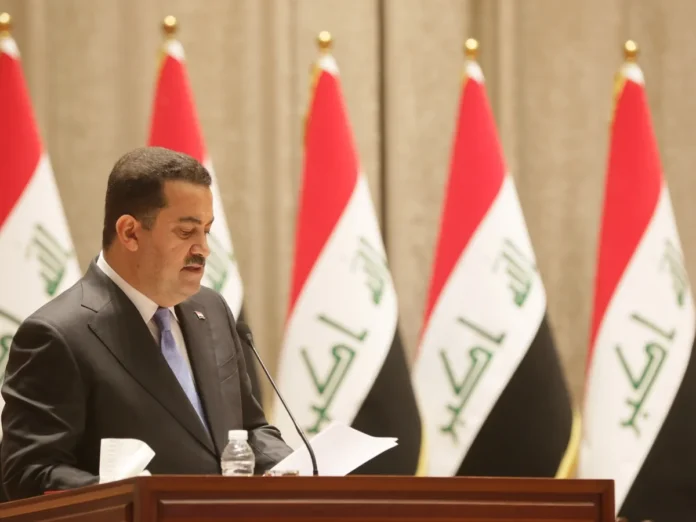Iraq’s Prime Minister Mohammed Shia’ al-Sudani faces growing scrutiny over misusing official power during election campaigns. Lawmakers accuse him of using his position to gain an electoral advantage just weeks before parliamentary elections on November 11.
On Saturday, lawmaker Hussein Arab formally accused the Prime Minister of exploiting state resources for his campaign. He said electricity poles were used to light his party’s posters. Arab submitted a document to Iraq’s Independent High Electoral Commission (IHEC), urging the removal of the Prime Minister from the election race.
This accusation follows complaints filed earlier by six other legislators on October 16. They claimed Sudani granted approvals, issued letters of appreciation, and handed out plots of land to influence voters.
Despite the allegations, the Reconstruction and Development Alliance, led by the Prime Minister, rejected Arab after he was disqualified by IHEC. Arab had faced disqualification in late November for allegedly forging his university degree. The alliance confirmed it does not support him as a candidate.
Earlier in September, IHEC fined Sudani and former Premier Nouri al-Maliki two million dinars for violating campaign regulations. Authorities cited multiple senior officials for breaching election rules, reinforcing concerns about campaign fairness.
IHEC confirmed that all technical, logistical, and administrative preparations for the elections are complete. The vote will follow the Sainte-Lague system, which tends to favor well-funded, established parties over independent or smaller candidates.
Observers warn that misusing official power during election campaigns could undermine voter trust and the transparency of Iraq’s elections. The repeated allegations highlight potential risks for a fair electoral process.
Political tensions remain high with just days left before voting. Lawmakers, parties, and the public are closely watching how these allegations might shape campaign strategies and election outcomes. The issue of misusing official power during election campaigns continues to dominate Iraq’s political discussion.


